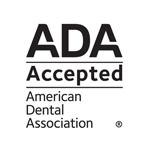What you eat during pregnancy affects the growth of your unborn child-including his or her teeth. Your baby’s teeth begin to develop between the third and sixth month of pregnancy, so it is important that you receive enough nutrients, especially calcium, protein, phosphorous, and vitamins A, C, and D.
It is a myth that calcium is lost from the mother’s teeth during pregnancy. The calcium your baby needs is provided by your diet, not by your teeth. So be sure to get enough calcium in your diet. You can do this by having at least three servings of dairy products per day. Or your obstetrician may recommend that you take calcium pills.
During pregnancy, many women feel hungry between meals. While this is normal, frequent snacking on sugary foods can cause acids to attack the teeth. Repeated acid attacks can cause tooth decay. Also, the infection caused by decay can spread. Either of these problems must be treated by a dentist.
How Pregnancy May Affect Your Gums
Here’s another reason to maintain good oral health while you are pregnant: Pregnancy hormones can make your gum tissue more sensitive to plaque. Your gums may become red, tender, and likely to bleed easily when you brush your teeth. This condition is called gingivitis (jin-ja-VIE-tis).
Gingivitis is very common during pregnancy (and afterward, if you nurse). Your dentist may advise you to have cleanings more often during your second trimester or early third trimester to help you avoid problems.
In some women, growths of tissue called “pregnancy tumors” appear on the gums, most often during the second trimester. These growths or swellings are usually found between the teeth and are believed to be related to excess plaque. They bleed easily and look red and raw. They usually disappear after the baby is born.
When asked about your medical history, be sure to tell your dentist if you are pregnant or are planning to become pregnant soon. Also tell your dentist about any changes in your health, any medicines you are taking (whether prescription or over-the-counter products), or any medical advice your physician has given you.
During pregnancy, keep seeing your dentist regularly for oral exams and teeth cleaning. If you are worried about the effect any drug, treatment, or x-ray might have on your pregnancy, discuss your concerns with your dentist and physician.
Radiation from dental x-rays is low. Current guidelines say it is more risky for a pregnant woman to postpone necessary dental treatment than to have an x-ray. This is because dental disease not treated during pregnancy can lead to problems for you and your baby.
Tell your dentist if you are or might be pregnant. If an x-ray exam is needed, the dentist will take steps to keep the x-ray exposure as low as possible.
A baby’s teeth can start to decay as soon as they appear in the mouth. Decay can start when teeth are in contact with sugary liquids often and for long periods. These liquids include fruit juice, soda, and other drinks containing sugar. If decay is not treated, it can destroy the baby teeth of an infant or young child.
The good news is that your child can avoid tooth decay. By starting oral care at an early age, you will help your child learn lifelong good dental habits. Here are a few simple steps you can take to keep your child’s smile healthy:


